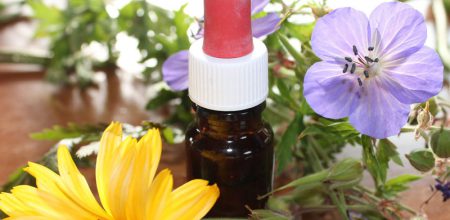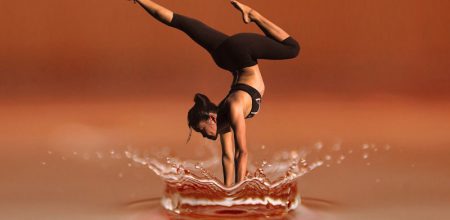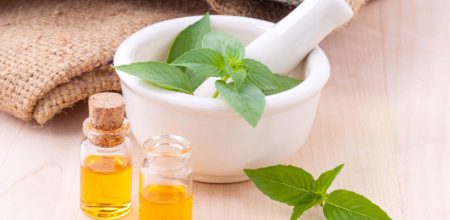
Herbal medicines are not taken seriously by women who start experiencing menopause. However, these medicines have been proven to be beneficial for women, providing fast relief for many hundreds of years. There has been a lot of recent research in this field, which combined with the age old customs that use particular herbs to address menopausal symptoms are providing ever improving levels of natural menopause care. Many cultures have used herbal extracts over the years and it has been deemed extremely effective.
Herbs such as black cohosh and dong quai have been used to alleviate the worst effects of menopause symptoms including nausea, hot flushes and night sweats.
It is a misconception to believe that any medicine or medicinal
alternative can actually “treat” menopause. It is a natural occurrence that need not be stopped and cannot be stopped. However, what you can do is treat the uncomfortable symptoms that appear during the menopausal phase. You have to alleviate the distress associated with these symptoms and learn how to deal with them. There is simply no permanent menopause remedy as your body is going through a natural change that cannot be changed or avoided.
However, consuming certain herbs and natural portions helps you to deal with accompanying issues such as the aforementioned hot flushes, night sweats and vaginal dryness.
Different research programs have come up with contrasting results. For example, some results show that black cohosh and ginseng that are traditionally used to lessen menopausal symptoms have absolutely no effect whatsoever. As for another herb, dong quai, it has been suggested that it has no effect on a woman’s endometrial uterus lining or her hormonal levels. Surprisingly, these two factors count the most when it comes to menopausal symptoms.
In contrast however, the bulk of widely accepted opinion has it that these herbs have raked benefits for menopausal women, believes that have been held almost since times immemorial.
In many ways, such disagreements should come as no surprise, because it is a common factor about using any hurt or natural substances to deal with medical conditions that they will sometimes be far more effective for some people than for others. This is just the nature of herbal treatments, because individuals react to different herbs and natural treatments in completely different ways.
The bottom line is, many thousands of people all over the world whereby black cohosh and ginseng, whereas others deny that they have any beneficial effect whatsoever. The only way you can realistically find out is to try to see whether they help you or not.
1. Phytoestrogenic herbs
Certain plants contain naturally synthesized phytoestrogen. This chemical resembles estrogen (which is synthesized in a woman’s
body). Therefore phytoestrogen works by replenishing the body’s store of estrogen, thus allowing these plant hormones to continue working
and balancing the body’s functions. Phytoestrogenic herbs also provide the body with essential amino acids, vitamins and minerals. Thus, the body does not suffer from the effects of rapidly depleting store of estrogen.
Phytoestrogenic herbs such as those listed below are often popular amongst menopausal women-
- Ginseng increases your energy levels and it also stimulates mental and physical energy, as well as decreasing the incidence of cancer. It reduces emotional instability and occurrences of hot flushes.
- Ginkgo helps in boosting one’s memory and reduces the chances of illnesses such as Dementia. It has been popular in china since times immemorial.
- Dong Quai contains phytoestrogen that bind to the estrogen receptors in our body, increasing the levels of estrogen through these plant hormones. The usual severity of menopausal symptoms is greatly reduced.
- Red Clover grows in Europe and Asia, and is deemed extremely effective when it comes to supplying the body with phytoestrogen. Mood swings and hot flushes are greatly decreased. It also fights osteoporosis, skin disorders and more.
- Black cohosh helps in addressing symptoms such as night sweats, hot flashes, anxiety, and depression.
2. Non-estrogenic herbs
Unlike phytoestrogenic herbs, the herbs in this group do not produce plant estrogen. Instead, they contain nutrients that nourish and protect the body by boosting the endocrinal system. Medicinal experts believe that these herbs do not have side effects and are thus not considered harmful. Instead, they seem to provide relief during the menopausal phase while being deemed completely safe.
The disorders that these herbs primarily address are hormonal imbalance, hot flushes, osteoporosis, depression, vaginal dryness, infertility, cardiovascular system problems and look after the hormone glands. They are also quite effective for helping to combat sexual intercourse related problems. These herbs help the body manufacture natural hormones, aiding in improved performance of both the endocrinal and pituitary glands.
Apart from applying or consuming these herbal medicinal alternatives, you should also maintain a proper diet, drink lots of water and regularly exercise in order to maintain your health during this phase of your life. These herbs will not completely eradicate all of the aforementioned menopausal symptoms, but they will surely provide you with some relief.
As suggested previously, there is some debate as to the effectiveness of herbs as a treatment for menopausal symptoms, although there is a broad body of evidence which suggests that appropriate herbs have helped many millions of women all over the world to get through the menopause with minimum problems.






